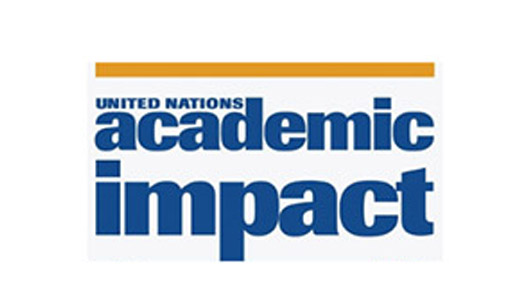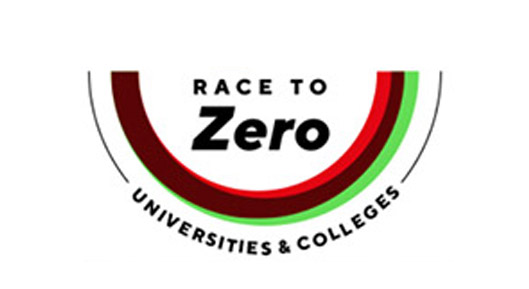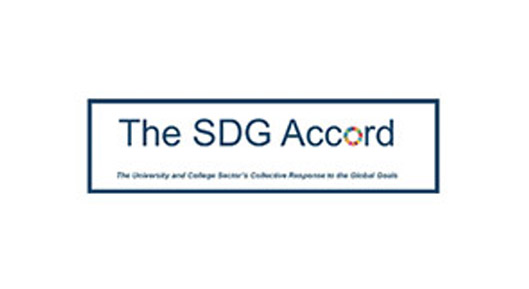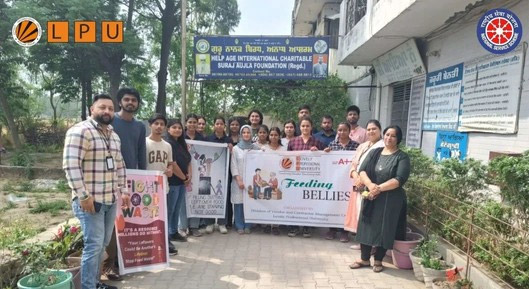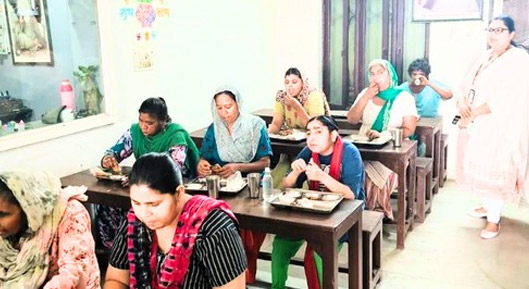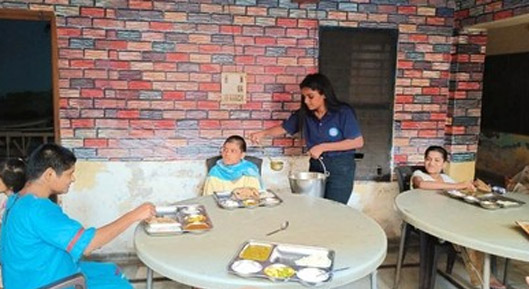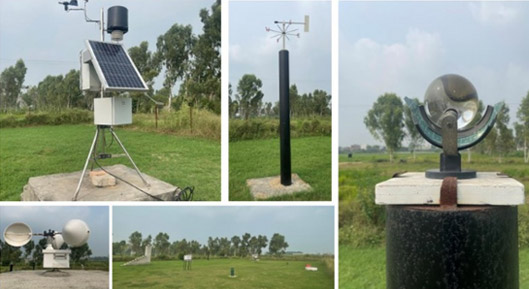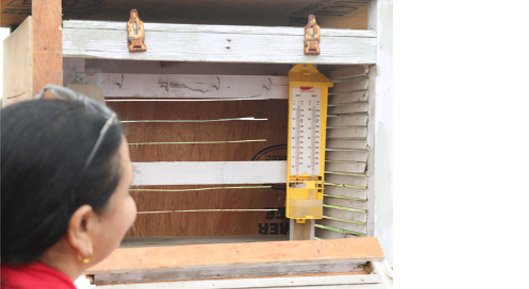Lovely Professional University has fostered many meaningful collaborations with regional NGOs and government bodies to drive policy development through a multifaceted approach. University provides an established and dedicated platform for dialogue and information exchange, and thus invites NGOs and government representatives to participate in seminars, workshops, and research initiatives. This open channel of communication allows academics, policymakers, and grassroots organizations to share insights, data, and practical experiences, leading to the formulation of well-informed policies. Moreover, LPU offers their research expertise to NGOs and government agencies, conducting studies that address specific regional challenges. Collaborative projects involving joint fieldwork, surveys, and data analysis, ensuring policies are grounded in empirical evidence and community needs. By nurturing these partnerships, LPU plays a pivotal role in bridging the gap between theory and real-world policy implementation, fostering a more inclusive and effective policymaking process.
Discovery and Recognition of Societal Issues
Identifying Problems and Challenges
LPU leads the path for effective identification of social problems and challenges through, discussions, comprehensive and interdisciplinary approach. It is achieved by encouragement of faculty members and students from diverse fields such as sociology, economics, agriculture, etc. to collaborate, universities can conduct thorough research and analysis by engaging with local stakeholders, NGOs, and government agencies that provided with crucial insights into prevalent social issues.
Furthermore, LPU regularly organized various events to provide forums, conferences, and workshops that bring together experts and community members to discuss their concerns and experiences. The analysis was understood by technology integration and data analytics that mapping out patterns, trends, and disparities within society, shedding light on hidden problems. Additionally, establishing partnerships with grassroots organizations allowed LPU to gain firsthand knowledge of community challenges.
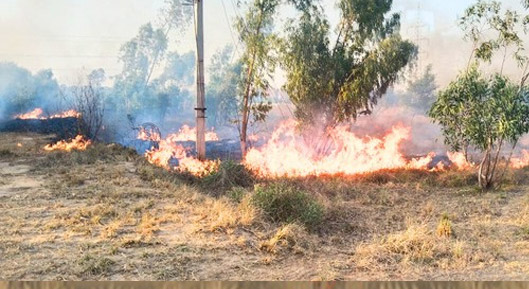
Paddy Stubble Burning
Paddy stubble burning, a common agricultural practice in North Shivalik Region, India, involves the burning of leftover rice straw after harvest to prepare fields for the next crop, releases harmful pollutants, including particulate matter and greenhouse gases, contributing significantly to air pollution and climate change. Efforts to address this problem often involve promoting alternative methods such as crop residue management techniques, encouraging farmers to adopt sustainable practices like mulching and composting, and providing financial incentives for eco- friendly solutions. Tackling paddy stubble burning requires a coordinated effort from farmers, government agencies, and environmental organizations to mitigate its adverse effects on both public health and the environment.
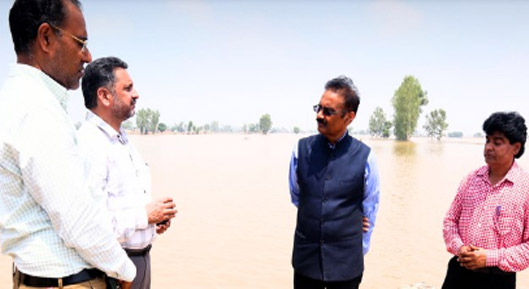
Natural calamity like floods, droughts
Punjab, a Northern state of India, faces a dual challenge of floods and droughts, which significantly impacts its agrarian landscape. During monsoon seasons, excessive rainfall often leads to devastating floods in low-lying areas, causing crop damage, displacing communities, and disrupting normal life. On the flip side, the state also grapples with recurrent droughts, especially in regions dependent on seasonal rains, where water scarcity affects agricultural productivity and livelihoods. The situation is exacerbated by factors such as rapid urbanization, inefficient water management, and climate change-induced irregular rainfall patterns. These climatic extremes necessitate proactive measures like improved irrigation systems, rainwater harvesting initiatives, afforestation, and community awareness programs to mitigate the impact of both and ensuring well-being of the agriculture and population.

Food wastage among students
The students who reside in hostels, paying guests, etc. are often involved in the wastage of food and eatables due to shift in lifestyle and eating habits, where students may have access to unlimited meal plans or cafeteria options, leading to overindulgence and subsequent wastage. Additionally, busy schedules, social events, and academic pressures can result in irregular eating patterns, causing perishable items to go unused and eventually wasted. Lack of awareness about the consequences of food wastage, coupled with a disposable culture prevalent among youth, also contributes to this issue. Moreover, students might not have the necessary skills to plan meals effectively or store food properly, leading to spoilage. Addressing this problem requires educational initiatives, promoting mindful consumption, teaching basic cooking and food preservation skills, and encouraging students to actively participate in community programs that address food insecurity, fostering a sense of responsibility towards food resources.
Policy/Strategy Development
LPU has continuously monitored these and other prevailing societal issues and has collaborated with regional NGOs and local bodies to tackle these issues that may involve Policy Development. LPU analyses the issues and tackles them by employing comprehensive strategies that blend research, education, and community engagement. LPU integrated social awareness and problem-solving skills into the curriculum, fostering a generation of socially responsible graduates. Additionally, partnering with local communities, NGOs, and government agencies allowed LPU to implement practical initiatives addressing immediate needs, creating a tangible impact. Furthermore, LPU organized awareness campaigns, workshops, and conferences to facilitate dialogue and knowledge-sharing among stakeholders.
Monitoring and reporting interventions
University monitors the social issues and reports data in form of reports, data etc. to all major agencies like- United Nations Academic Impact : Click here to view the report online.
- Race to Zero : Click here to view the report online.
- The SDG Accord : Click here to view the report online.
University has taken stringent measures to minimize food waste and to Alleviate Hunger. In this regards University has student organization that spread awareness among the youngsters to avoid food wastage and use the required amount of edible food. This has led to evolution of university strategy to manage the left-over food and peels leading to adaptive management.
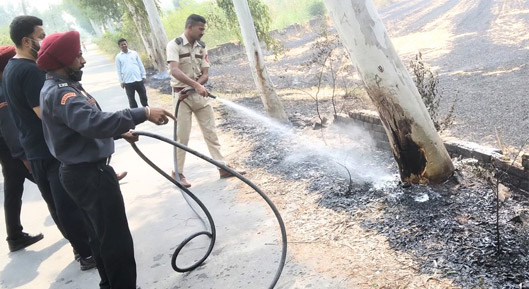
Adaptive Management
LPU has evolved to tackle many such issues with the partnership of various NGOs, student clubs, Government, etc. The active role played by University can lead to framing of various SDG policies by government at local, regional and national level that is a direct outcome of Monitoring and reporting social interventions. For each of the above issues discussed above, LPU has resolved them by providing the solution and adapting to change.
Quenching Local Agricultural Fires
The fire safety staff of LPU actively tackles any fire related accidents occurring in nearby villages/cities, in vicinity, to quenches them on priority basis and assists Municipal Corporation of Kapurthala to minimize waste of property and life. The fire tender is immediately rushed to the site of fire to douse it on priority basis.
Feeding Belly Program to Eradicate Food Wastage and Feed Needy
LPU-NSS team to organizes ‘Feeding Bellies’ to collect the extra uneaten and pure food (not the leftover) from different hostel, cafeterias, etc. of LPU campus & distribute in amongst the poor and displaced communities of nearby villages & slums. This practice has led to reduction in food wastage and Alleviate Hunger among poor and needy.
LPU-NSS Volunteers distribute foof and other eatable items to needy under ‘Feeding Belly’ program in areas nearby University
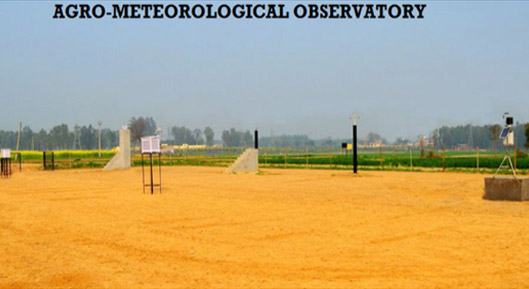
Monitoring Weather changes via Agrometeorology Station
University has its own Agrometeorology station that detects any unusal change in weather conditions and nearby people in villages, cities especially farmers can be informed prior. Agrometeorology station provides vital weather and climate-related data that farmers rely on for informed decision-making. It collects and analyzes meteorological information specific to agriculture, such as temperature, humidity, rainfall, wind speed, etc. and by understanding local weather patterns, farmers can optimize planting, irrigation, and harvesting schedules, enhancing crop yield and quality. Moreover, agrometeorology station help farmers prepare for extreme weather events, such as droughts or heavy rainfall, allowing them to implement necessary measures to protect their crops and reduce losses. Additionally, this data is valuable for researchers and policymakers, aiding in the development of climate-resilient agricultural practices and policies. Agrometeorology stations serve as invaluable tools in ensuring food security, sustainable agriculture, and the overall resilience of farming communities in the face of changing climatic conditions.
Agrometrology station established in University Agriculture Fields
Meteorological station is used to monitor and record weather conditions, such as temperature, humidity, rainfall, wind speed, and solar radiation. This data is crucial for farmers to make informed decisions on planting, irrigation, pest control, and harvesting, helping optimize crop yield and reduce risks related to adverse weather conditions. contributing to more sustainable and efficient agricultural practices.
Partnership for Policy Development on SDGs
LPU Partnerships for Policy Development on Sustainable Development Goals (SDGs) seeks to promote cooperative research, discourse, and innovation in tackling international sustainable development concerns. LPU aims to plug the gap between theory and practice by bringing together academics, policymakers, members of civil society, and industry stakeholders. This ensures that policy decisions are supported by thorough, evidence-based research and results into fostering economic, social, and environmental sustainability by developing practical solutions through cross-disciplinary collaborations and an unwavering commitment to inclusivity. LPU seeks to advance global agenda while enabling local and regional communities to enact meaningful policies for a better, more equitable future by aligning with the SDGs.
| University Officer | Organization Name | Category of Organization | Type of Organization | SDG | Web- link |
|---|---|---|---|---|---|
| Dr.Bimlesh Kumar | Society of Pharmaceutical Education & Research (SPER) | Pharmaceutical Research Society | Research | 3, 17 | Click Here |
| Anu Bansal | EGEA | NGO | Higher Education | 1, 4, 17 | Click Here |
| Lovi Raj Gupta | EGEA | NGO | Higher Education | 1, 4, 17 | Click Here |
| Archana Malik | Glasgow Caledonian University | International Public University | Higher Education | 4, 17 | Click Here |
| Monica Gulati | Pharmacy Council of India | Higher Medical Education | Government | 3, 4, 17 | Click Here |
| Sophiya Sheikh | DST AWSAR | Research | Government | 9, 17 | Click Here |
| Vikas Sharma | CPCSEA | Regulatory committee | Government | 16, 17 | Click Here |
| Monica Gulati | Healium Industry | Health | Private | 3, 17 | Click Here |



